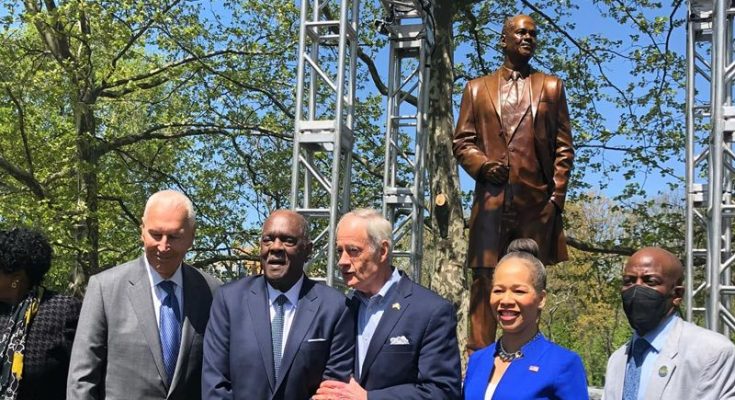Officials honored Wilmington’s First African American mayor, James H Sills Jr. over the weekend.
Press Release
Sills, the storied, trailblazing leader and legislator, served as city’s mayor from 1993 to 2001, and was honored in a statue unveiling and dedication ceremony on Saturday.
There are many major American cities that have seized the moment, helped move the nation forward and are thriving culturally and economically today—in part owing to their ability to embrace change and elect Black mayors at some point in their history. New York, Chicago, Atlanta, Los Angeles, Philadelphia and several others certainly among them.
Though not as high-profile perhaps, the city of Wilmington, Delaware enjoys this distinction as well, having duly elected accomplished legislator and activist James H. Sills, Jr. as its first African American mayor in 1993.
After charting a memorable and productive two terms in office armed with a commitment of service to “all of the people,” and to “a Wilmington that works for all,” the honorable former Mayor Sills will be honored with a statue being erected in his likeness, set to be unveiled April 30th at South Park Drive and North Market St. in Wilmington. The dedication ceremonies begin at 10:00 a.m., and Delaware State Senator Darius Brown should be acknowledged for leading the tedious process of getting the project approved, and funded.
Created by respected sculptor Jon D. Hair, the statue celebrates Sills’ legacy of 60 years in public and community service. With over one hundred commissions to his credit, Hair is the North Carolina-based visionary artist who created the statue of Sills’ hero, Morehouse College President Dr. Benjamin E. Mays (1940-67), erected there at Sills’ alma mater. The very idea that this commission was undertaken at all is humbling to a selfless servant like Mr. Sills, who has always held to the belief—imparted to him by Mays himself during his undergraduate years— that “Black men have a responsibility to act as leaders and to engage in public service…to strive to live constructive, honorable lives.”
Mr. Sills, a proud and collegial “Morehouse Man,” echoes this sentiment. “When I first heard about the [monument] proposal, I was shocked and surprised, but also humbled.”

